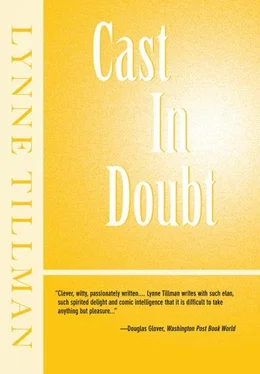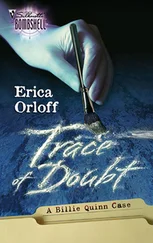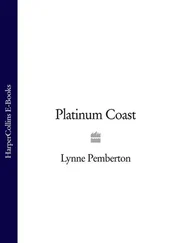Partheny welcomes me back as if I were Odysseus. I hope she is not matchmaking. It is a lonely life she leads. I smile and return to my subterranean abode where she has placed a vase with flowers. It sits on the cheap dresser, inadequately providing beauty to an undistinguished, indeed dismal, room. But in Partheny’s small gift is such richness that I sit on the bed and weep. I do not know why. The events of the last days have weakened me. I sit motionless on the bed.
Her gift of daisies and narcissus dislodges a buried incident from my days in college, when a friend with whom I had had a quarrel and to whom I no longer spoke left flowers in my room. In just the same way. Then too I wept, uncontrollably, and yet we never again were friends. Pride, I suppose, or callow youth prevented my making the rapprochement. I wonder if he is alive. Life is endlessly sad. To be sad is to be human. To be human is to be sad. With such bathos do I nearly slip out of consciousness. But just before I do, for which I am oddly glad, I hear Roger’s bawdy voice. He shouts gleefully, Blow it out your asshole, Horace.
In the morning, Partheny knocks on my door and carries in a tray with coffee, a boiled egg, bread and jam. I thank her profusely. Behind her is a little girl with a ribbon in her dark hair. She has a child and is not alone, I tell myself. I eat and dress. I am in a common-sense sort of temper. I will walk to the beach this morning and see what’s what. I straighten my bed and march up the stairs. There is a young man — he is French, I believe — standing close to Partheny. He is nuzzling her neck. Suddenly they become aware of me. She smiles, with some embarrassment, but much less than one expects from a Cretan widow. Clearly he is her lover; it is no wonder the woman at the restaurant last night shook her head no. Partheny is breaking with the custom of her village, indeed, of Crete. She is either brave or foolhardy. She might, and this is Stan Greenish, yet not farfetched, end up dead. I am simultaneously relieved — I am not part of her marriage plans — and worried. The consequences of their actions could be dire. Does the young Frenchman know this? And will he behave responsibly?
I rid my mind of these concerns as soon as I shut the door behind me. Partheny must know what she is doing. But do I? That must be faced. I amble along the gravel-and-tar street. Pebbles stick between my toes, making walking a nuisance. I despise sandals — one’s toes stick out in such an accusatory fashion — and yet I refuse to ruin my tennis sneakers by wearing them on the beach. I do treasure the ocean and excitement mounts inside me, welling up in my chest. It is how I think birds feel when mating, or what nature intends for them in the winter when they puff themselves up to keep warm. I often compare myself with birds because of my thin arms and legs and slightly rounded stomach.
I pass the restaurant. The family is on the terrace. I call out to them — Yá sas — and they greet me by name. Then I continue on my way and, after not too long, perhaps another mile, I reach the path to the beach. It is down a rocky incline. I fall just once but do not hurt myself. There is no one in sight and I make my way to an isolated cove where the water is clear as glass. Tinted glass — it is the palest of aquatic greens. I drop the blanket which Partheny has lent me onto the warm sand and remove my trousers and shirt. I am of course wearing bathing shorts; nude sunbathing is for the French and Italians. I smother my skin in suntan oil. I pay particular attention to my face, to my nose especially. Now I gleam and glisten like a Greek god. I unpack my bag, which contains a towel, a flask of water, books, pen, paper, and a small but powerful telescope.
I intend to read and sunbathe. Then I will go for a swim. Ten laps would be fine. It is so far south here, the sun beats mercilessly upon my head. I put on my blue yachting cap and sit up. I look out as far beyond the horizon line as I can. That is an old game — trying to see how far one can see. But how does one know? After a while — it is extremely hot — I walk to the water and rush in, determined not to be cautious. I do not want anything to stop me. The water isn’t cold. I swim ten laps, I think. It is exhilarating to be in nature in this way.
I return to my blanket and towel off. It is an utterly peaceful site. I am oblivious to everything but the luxurious lassitude physical exertion and sun cause. I peer through my telescope but see no one in the distance. I douse myself again with oil, lie down, and place my arms over my eyes. I am close to sleep. The air is still. Jupiter and Poseidon must be holding their breath. The waves lap sweetly, blissfully, at the wet sand. I drift off. I am not sure how many minutes go by.
I become conscious suddenly of something that is near. It rouses me. It is present. Opening my eyes but temporarily blinded by the noonday sun, I perceive a human form. Gradually I can see, but I can hardly believe my eyes. More strange than my chancing upon the Gypsies, who had been in my mind and on my map, as I had wanted to chance upon them — a matter of controlled randomness and, therefore, not unaccountable — is what happens now. Rather, who happens now. That this meeting occurs on an obscure beach in a town not important enough to be on a map makes it all the more improbable. But, for all of that, it happens.
Standing above me is Stephen the Hermit, the ex-child-movie star, the lunatic, the man who loves electricity. Details of his biography mount one on top of the other as he smiles down at me. Tall and thin, he looms over me. I have not seen Stephen since that night when he ran away from the harbor, humiliated by Roger, Wallace, the Dutchwoman, and me, too, I suppose, his meal left behind uneaten.
Stephen lopes over to the space beside me and throws down his towel. He positions it not too close to mine, providing us a wide berth. As I remember it, be suffers from claustrophobia and fears all manner of intimacy, which to him must promise and threaten suffocation. Imprinted on his oversized towel is a salmon-pink flamingo and the words “Miami Beach.” The colorful and incongruous souvenir towel is in marked contradistinction to Stephen, who is in no way like the tourist who might sunbathe on beaches there. It is unimaginable — Stephen the Hermit strolling on Collins Avenue, traipsing into a hotel catering to the nouveaux riches.
Is there a meaning to his appearance? My mind races along these lines — he is an apparition, then a presentiment. A ghost, someone who has come back from the dead. He has, in a sense, been dead to me. To the Gypsies he would be a mulo! But frankly and quite simply, his presence is first, to me, were I to be completely honest, intensely annoying and implicitly a rebuke. There is something about his accidentally turning up in the place I desperately and urgently needed to find that is irksome.
I glance at him casually, I hope. Stephen is settling himself down innocuously, patting his shoulder bag — a striped and shabby cloth affair — and placing it neatly on his towel. The bag bulges. What could he — of all people — be carrying in it? Still, taking him in anew, and seeing him thus, I scold myself for my initial lack of charity. At least he has not been consumed by fire. He is safe and, from the look of him, eating well.
Stranger to say, once I have gone through a compendium of negative responses, I am happy to see him. I have always liked Stephen and have maintained a genuine if distant affection for him. But one would think he were a long-lost brother, so pleased do I become to have his most unexpected and unusual company. Of course I know from my reading about the Gypsies that to them we gadje are brothers, sedentary brothers. I smile to myself — and we are sitting! Normally, as I’ve already mentioned, I do not espouse or experience brotherly feelings. I dislike my brother intensely. Stephen, though, is nothing like my brother. I suppose, also, I am somewhat guilty about not having chased after him that night. It was unconscionable of me. What could I have been thinking?
Читать дальше












